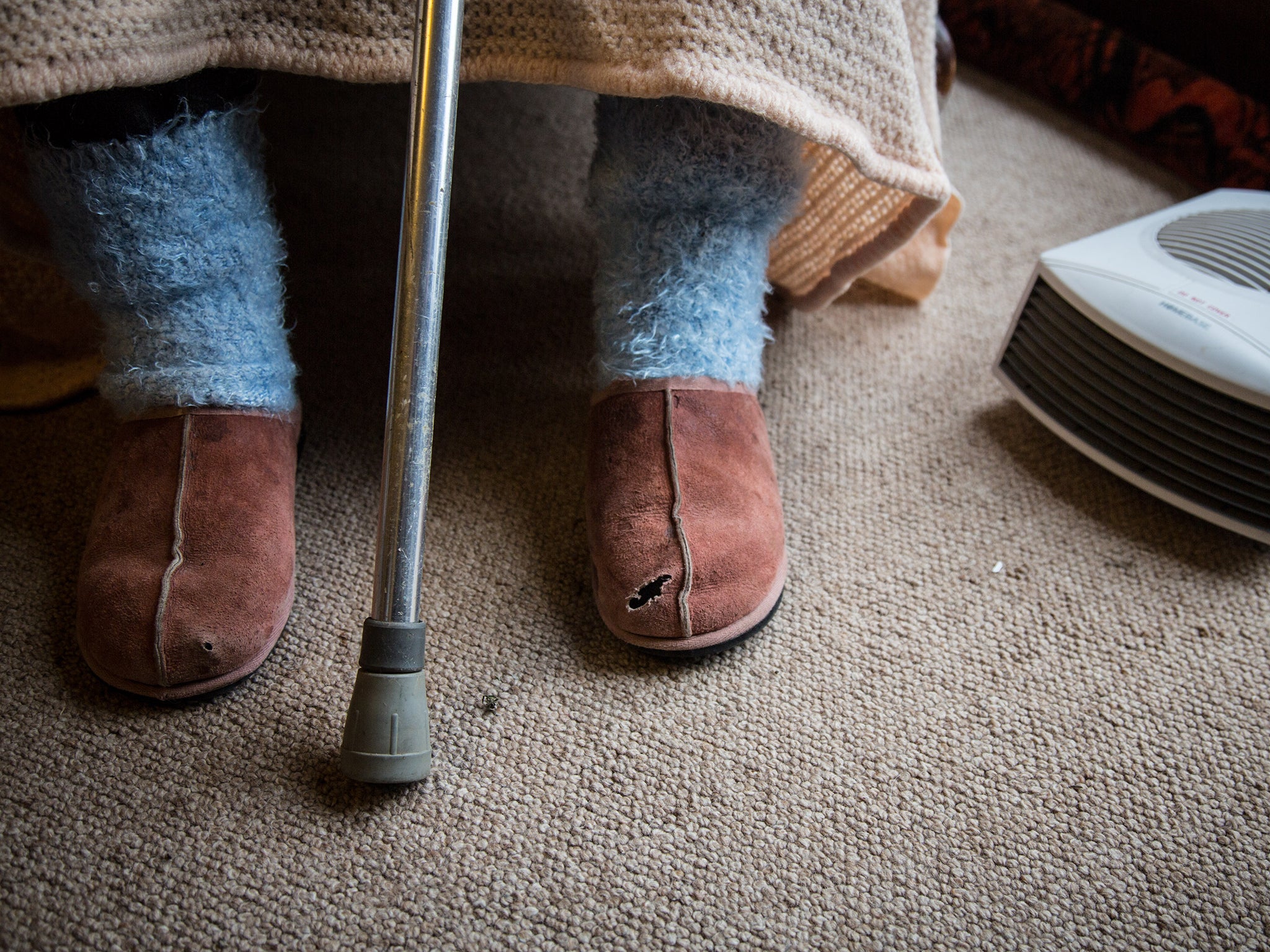Brexit: Don't block care workers with 'low-skilled' migration threshold, Age UK tells ministers
Charity urges Sajid Javid not to make 'a bad situation even worse'

Your support helps us to tell the story
From reproductive rights to climate change to Big Tech, The Independent is on the ground when the story is developing. Whether it's investigating the financials of Elon Musk's pro-Trump PAC or producing our latest documentary, 'The A Word', which shines a light on the American women fighting for reproductive rights, we know how important it is to parse out the facts from the messaging.
At such a critical moment in US history, we need reporters on the ground. Your donation allows us to keep sending journalists to speak to both sides of the story.
The Independent is trusted by Americans across the entire political spectrum. And unlike many other quality news outlets, we choose not to lock Americans out of our reporting and analysis with paywalls. We believe quality journalism should be available to everyone, paid for by those who can afford it.
Your support makes all the difference.Care workers from the EU should not be stopped from coming to Britain through being categorised as “low-skilled” because it would make a “bad situation even worse”, a leading charity has warned.
Age UK urged home secretary Sajid Javid to exempt care workers from proposed rules limiting migration and access to the UK labour market after Brexit. The government is consulting on recommendations by its migration advisory committee that a £30,000 salary cap be imposed for lower-skilled workers.
The charity said the social care workforce was already struggling and any further reduction would worsen the current plight of the industry.
Age UK argued care workers are low-paid, rather than low-skilled, and that Britain is in “no position” to do without them.
Caroline Abrahams, the director of the charity, said the social care sector was already losing staff and could not afford to lose more.
“Live-in care and social care in London and across the south of England seem especially threatened because EU nationals are concentrated here; there’s no way these people can be quickly or easily replaced, and social care is losing staff as it is.”
Age UK said it feared that the care system is in “no fit state to withstand the systemic shock that such a move would represent”, and pointed to figures which suggested there are 110,000 job vacancies in care in England.
It added that while EU nationals already in the UK may decide to stay after Brexit, the greatest threat came from turning off the supply of care workers from the continent in the future.
“Care work is low-paid, not low-skilled, so it is quite wrong that it is being caught by the new rules proposed by the Migration Advisory Committee. The government should recognise this and allow EU nationals to continue to come and work as paid carers,” Ms Abrahams said.
“The government has granted a partial exemption from the new rules for fruit pickers and Age UK believes it should remove care workers from this proposed post-Brexit regime altogether.
“Does the government really think that being able to eat homegrown Granny Smiths is more important than ensuring that ‘Grannies and Grandpas’ up and down the country can get the care they need?
“If ministers do not budge on their current plans, this will be the implication. They should do the right thing and allow EU nationals to continue to work in the care sector.”
Shadow social care minister Barbara Keeley said the government must “rethink this dangerous decision”.
“The social care system stands on a cliff edge and this government’s short-sighted refusal to exempt care staff from new post-Brexit immigration rules could push it over the edge,” she added.
A Home Office spokeswoman said: “As the Home Secretary has said, EU citizens make a huge contribution to our economy and to our society and we want them to stay.
“The social care sector is vital to the UK and our future immigration system will ensure that we have access to the skills and talents we need after the UK leaves the EU.
“As part of this, we are considering whether a lower salary threshold should apply for some roles in shortage. This is already in place for nurses, paramedics and some teaching and social care roles in short supply.
“The new skills-based immigration system will be implemented from 2021 following an extensive 12-month programme of engagement with businesses and stakeholders, including the social care sector across the UK and the EU and international partners.”
Additional reporting by agencies
Join our commenting forum
Join thought-provoking conversations, follow other Independent readers and see their replies
Comments